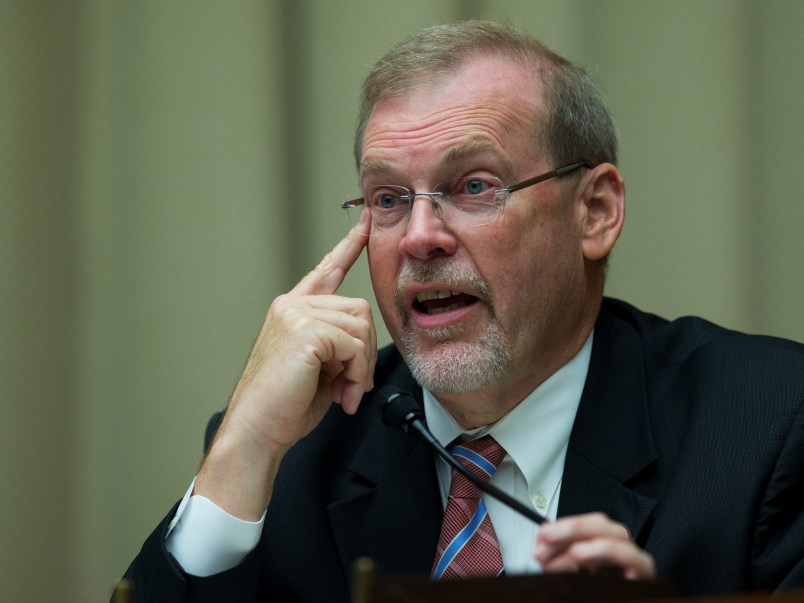Republicans are considering phasing out Obamacare’s Medicaid expansion in their Affordable Care Act repeal. As part of the phase out, they would allow the Medicaid expansion states to “freeze” the acceptance of new enrollees, while non-expansion states would be given additional funding from a separate mechanism to “level the playing field” among the states.
The idea comes as a major fight is brewing internally among Republicans over whether to dismantle the Medicaid expansion when they attempt to repeal the Affordable Care Act this year. However, many of the details are yet to be worked out, and it’s unclear how it would fit within GOP lawmakers’ plans to block grant the Medicaid program, which is a major priority in their health care overhaul.
Coming out of an GOP House caucus Thursday morning about Obamacare repeal, Energy and Commerce Committee member Rep. Morgan Griffith (R-VA) explained how the proposal would work:
“Here’s what we’re looking at: a period of time where the [expansion] states can keep the expansion for those people who it has been expanded to, but because these are folks that, it is believed, will phase out, they can’t add new people, and over a period of years that will eliminate itself,” Griffith told reporters.
How would folks on Medicare under the expansion be phased out? Here’s where things get cloudier.
Proponents claim (and Griffiths said that there were “numbers” to back this up, though he hadn’t seen them yet) that over the transition period expansion enrollees would naturally migrate off the program onto other types of coverage, until the states’ programs were back to their pre-expansion levels.
“These are generally able bodied working folks, because if they were disabled they would already be on Medicaid without expansion,” Griffith said. “And so as a result of that, they will be going to either making enough money to buy their own insurance, or they go on an employer’s plan, or they go into some other plan.”
Details on how that would work exactly have not been made public, and it’s not clear whether Republicans have reached agreement on those details.
In the meantime, the states that didn’t expand would receive a boost in funding via increased Disproportionate Share Hospital (DSH) payments. Generally speaking, the payments are geared towards covering uncompensated care offered by hospitals. They were decreased under Obamacare on the premise that the expanded health insurance coverage would reduce the amount uncompensated care taken on by hospitals.
GOP lawmakers from non-expansion states have been complaining that maintaining or freezing ACA’s Medicaid expansion was unfair to them because their states’ taxpayers would be paying federal tax dollars for a program Republicans had objected to under President Obama. The extra DSH money for those states is meant to ameliorate that sense of unfairness.
Griffith said it was “still being discussed” how this workaround would fit into the other Medicaid proposals being mulled by Republicans, which include block granting the program or funding it in a capped per capita allotment.







“These are generally able bodied working folks, because if they were disabled they would already be on Medicaid without expansion,” Griffith said. “And so as a result of that, they will be going to either making enough money to buy their own insurance, or they go on an employer’s plan, or they go into some other plan.”
The people using Medicaid expansion work at low-paid jobs, sometimes two or three low-paid jobs, and cannot afford health insurance premiums, so they should be punished for working for low pay and shoved off into “some other plan”, as yet undecided. The hard-hearted elected officials who are generously paid with our tax money have no concept of what it is to be poor or to live from paycheck to paycheck.
Um, many able bodied working folks didn’t have insurance pre-Obamacare. That was the whole point.
Translation: We didn’t opt-in when we could so now we’re running crying to that awful Federal Gov’t to make us not sad.
Trumpcare is really turning out to be a real turd and will have so many people insured, NOT. Republicans are proving every day to be the party of billionaires. Poor and middle class are not even second class citizens to republicans.